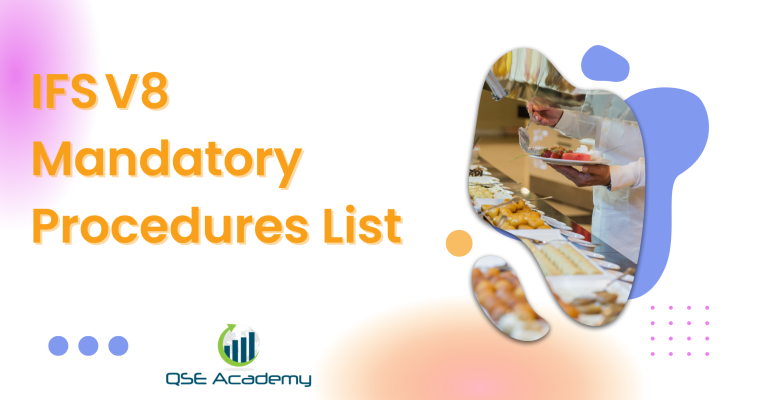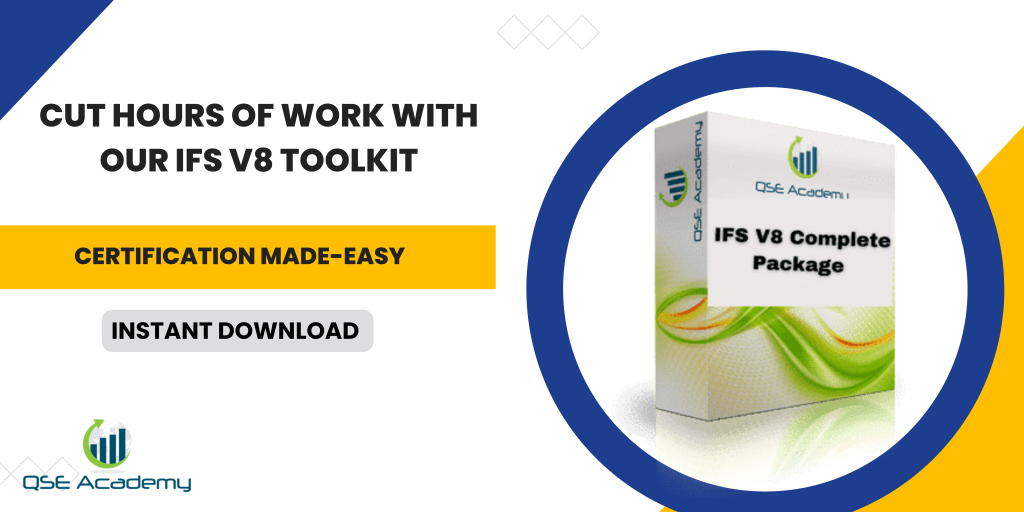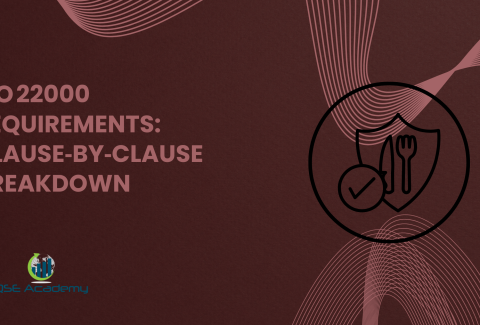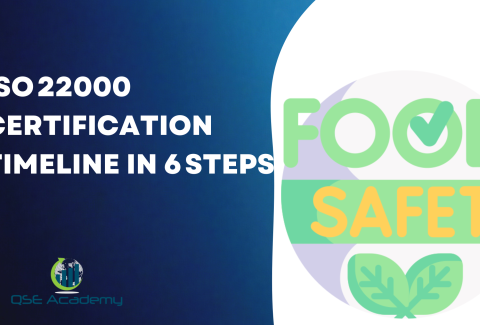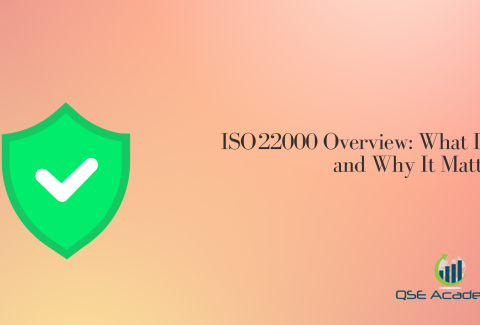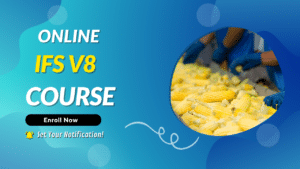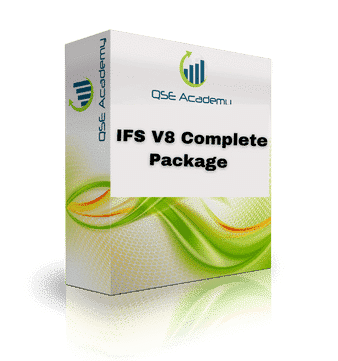IFS V8 Mandatory Procedures List
Last Updated on December 23, 2025 by Hafsa J.
Why These Procedures Matter in IFS V8
When I work with food manufacturers preparing for IFS V8 certification, one question comes up almost immediately:
“Which procedures are actually mandatory?”
It’s a fair question. The standard can feel dense, and many teams worry they’ll either over-document or miss critical requirements. Over the years, I’ve helped both small family-run operations and large international brands prepare for IFS audits. The companies that pass smoothly usually have one thing in common:
Their procedures aren’t just written—they’re understood and used.
This article breaks down every mandatory procedure required under IFS V8 and gives you practical guidance on how to build them in a way that works in real life—not just during audits. By the end, you’ll know what needs to exist, how auditors test compliance, and the pitfalls you’ll want to avoid.
Document Control & Record Management Procedure (IFS V8 Documentation Requirements)
If there’s one procedure that affects everything else, it’s document control. Without clear control, you’ll end up with outdated cleaning plans on the shop floor or multiple versions of allergen checklists floating around.
What this procedure needs to cover:
- How documents are created and approved
- Version control and revision tracking
- How obsolete documents are removed
- Retention times for records
- Who owns each document
A common mistake:
Companies rely on uncontrolled spreadsheets. Auditors spot this instantly—usually when someone opens “final_version_8_UPDATED_new2.xlsx.”
Pro Tip:
Put a simple footer on every controlled document: “Revision No. | Effective Date | Document Owner.”
It sounds small, but it signals maturity and prevents confusion.
 Training & Competency Procedure (IFS V8 Training Requirements)
Training & Competency Procedure (IFS V8 Training Requirements)
In IFS V8, competence matters more than certificates. I’ve sat in audits where operators confidently explained the allergen segregation plan—and the auditor wrote “excellent evidence.” I’ve also seen people panic, shrug, and say, “I don’t know, I just follow what they told me.”
You can guess which scenario passed.
Your procedure should include:
- Competency requirements per role
- Training planning and delivery
- Evaluation of training effectiveness
- Refresher frequencies
Watch out for:
Signing off training just because someone was physically present—not because they demonstrated competence.
A simple fix:
Add a short practical assessment and capture the result as a record.
Internal Audit Procedure (IFS V8 Internal Audit Requirements)
Internal audits aren’t about perfection—they’re about knowing yourself. Auditors want to see whether you understand your gaps and improve, not whether everything is flawless.
What this procedure needs:
- Risk-based internal audit schedule
- Auditor competence, independence, and methodology
- Evidence-based reporting
- Follow-up and closure of findings
Common pitfall:
Doing all internal audits in a single week right before certification. It’s obvious—and auditors call it out.
Better approach:
Spread internal audits across the year and align them with operational rhythms.
Nonconformities & Corrective Actions Procedure (IFS V8 CAPA Requirements)
Corrective action isn’t just fixing the issue—it’s preventing it from happening again. The distinction between correction (fix it now) and corrective action (prevent recurrence) is often misunderstood.
Key elements:
- Identification and documentation of nonconformities
- Root cause analysis using a defined method
- Corrective action plan implementation
- Verification of effectiveness
Real example:
A bakery had recurring labeling errors. The fix wasn’t retraining—it was redesigning the label verification step to include barcode scanning. That stopped the issue completely.
Allergen Management Procedure (IFS V8 Allergen Control Requirements)
Allergen risks are high-impact and often customer-driven. IFS V8 requires a documented allergen control program that reflects real practices—not theoretical ones.
Your procedure should include:
- Allergen risk assessment
- Storage and segregation methods
- Production scheduling
- Cleaning and validation methods
- Label verification controls
Where companies fail:
Assuming consumer-facing legal statements automatically satisfy IFS. They don’t.
Auditors look for:
Evidence that allergen controls are active, monitored, and verified.
Food Fraud Procedure (IFS V8 Vulnerability Assessment)
Food fraud isn’t just about suppliers—it’s about the entire supply chain. Your procedure needs to outline how you assess risks, update them, and take action.
Include:
- Vulnerability assessment method
- Scoring criteria
- Mitigation measures
- Review triggers (e.g., new supplier, intelligence alerts)
A simple spreadsheet won’t cut it unless the methodology is clear.
Food Defence Procedure (IFS V8 Food Defence & Security Requirements)
Food defence protects against intentional contamination. IFS wants to see a realistic plan—not a copied template.
Include:
- Access control
- Visitor and contractor rules
- Suspicious activity reporting
- Testing and monitoring
Mistake to avoid:
Listing security measures that don’t exist physically. Auditors check reality—not just paper.
FAQs
Do we need all these procedures separately?
Not necessarily. You can combine procedures as long as each requirement is clearly addressed and easy to trace.
How often do mandatory procedures need updating?
Annually—or sooner if a process, product, legal requirement, or customer requirement changes.
Are templates enough for compliance?
Templates help you start, but they don’t replace understanding. Auditors want evidence of real implementation.
Conclusion: Your Next Step Toward IFS V8 Compliance
These procedures form the backbone of an IFS V8-ready system. When they’re clear, controlled, and actually used, the audit becomes predictable—and even smooth.
Over the years, I’ve seen teams go from overwhelmed to confident once these core procedures were structured properly. If you’re building or refining your documentation, start here. Get these procedures right, and everything else becomes far easier.
Whether it’s ISO 9001, ISO 22000, or the cosmetics-focused ISO 22716, I’ve spent my career I’m not here to call myself an expert—I prefer “enthusiast” because I truly love what I do. When I’m not writing about standards, you’ll probably find me playing Piano 🎹, connecting with people, or diving into my next big project💫. I’m an engineer specialized in the food and agricultural industry
make ISO standards less intimidating and more approachable for everyone.
turning complex jargon into clear, actionable steps that businesses can actually use.
There’s something incredibly rewarding about helping people navigate food safety and quality management systems
in a way that feels simple, practical, and even enjoyable.
I have a Master’s in QHSE management and over 12 years of experience as a Quality Manager
I’ve helped more than 15 companies implement ISO 9001, ISO 22000, ISO 22716, GMP, and other standards
My clients include food producers, cosmetics manufacturers, laboratories, and service companies
I believe quality systems should be simple, useful, and efficient.

